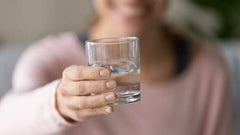
Is your diet damaging your kidneys?
The health of your kidneys is pretty important to your general health, and as a dieter improving your health, it’s unlikely you want to do anything to risk damage to them. They play a number of vital roles, including:
- Removing waste and excess fluid – the kidneys filter approximately 200 quarts of blood daily to remove waste and fluid.
- Regulating blood pressure – because your kidneys require pressure to work properly, they can raise or lower blood pressure through hormone secretion.
- Making red blood cells – the kidneys produce erythropoietin, a hormone that instructs bone marrow to produce more red blood cells, which carry oxygen throughout the body.
- Keeping bones healthy – the kidneys produce an active form of vitamin D, which aids the body in the absorption of calcium and phosphorus, thereby strengthening bones.
- Controlling pH levels – the kidneys maintain a healthy pH by removing or otherwise adjusting acids in the body.
However, some diets can compromise healthy kidney functioning. There are a number of ways in which what you eat – or what you don’t eat – can compromise how the kidneys function and fulfill these vital roles.
In this article, we discuss ways in which your diet can affect your kidneys, and simple tips you can implement to ensure you don’t cause, or aggravate existing kidney damage.
5 ways your diet can affect your kidneys
When you begin any new weight loss regimen, especially when you make dietary changes, you probably worry about little else other than what you’re eating and how much of it you’re eating.
However, what you eat and how much you eat can both affect your kidneys, along with your potential risk of developing kidney disease and other health conditions. Here are just 5 examples of how your diet can affect your kidneys:
1 Excess sugar increases your risk of kidney disease – at a basic level, too much sugar in your diet – even in hidden places like salad dressings and bread – can increase your risk of obesity and diabetes, both of which are risk factors for kidney disease. Processed foods are often full of sugar as well, so natural, whole foods are best when you’re concerned about your kidneys.
2 Too much sodium – even some healthy foods contain a lot of sodium, and large quantities can increase blood pressure, thereby increasing damage to the kidneys. High blood pressure forces the kidneys to filter more blood at higher rates, which can lead to long-term problems if not addressed and corrected.
3 Not drinking enough water – when you diet, the body breaks down fat, along with muscle, for additional protein when working with a caloric deficit. When the body breaks down muscle, it releases uric acid into the bloodstream. Typically, the kidneys can filter uric acid out of the blood. However, in large quantities, the kidneys often can’t handle all of the uric acid, which can turn into kidney stones or even cause kidney failure.
4 Too much protein – just like muscle breakdown can cause too much uric acid in the bloodstream, causing reduced kidney function, so can eating too much protein. Even the smartest dieters often believe that the more protein they eat, the better! However, that’s not always the case. In fact, protein metabolism causes excess waste, like urea, in the body, which can strain the kidneys over time.
5 Too much red meat – lean sources of protein, like chicken, are best for weight loss. However, animal proteins can be hard on the kidneys, and, because red meat is also high in saturated fat, it can put an additional strain on their functioning.
To sum up, sodium, excessive protein, sugar, and processed foods are all damaging to the kidneys, as is a diet where you don’t drink enough water. Luckily, there are simple changes you can make to ensure you don’t damage your kidneys as you lose weight.
3 simple ways to protect your kidneys as you lose weight
With obesity being a risk factor for many kidney-related conditions, it’s even more important to figure out simple ways to reduce the likelihood of kidney damage as you lose weight. And making these changes is easier than you might think!
Here are 3 simple ways to protect your kidneys through diet-related methods:
1 Drink more water – this is an obvious switch, given the problems listed above, but an important one worth mentioning nonetheless! Drinking water comes with a whole host of benefits, including a better balance of body fluids, increased energy, and better waste product transfer in and out of cells – yet another important kidney function! Without sufficient water, your body is inefficient at cleansing and ridding the body of toxins. As such, it’s important that you drink up daily! After all, chronically drinking too little water can increase your risk of kidney stones, as mentioned above.
2 Consume less sodium – sodium can creep into your diet in unexpected ways. The easiest way to avoid sodium-related problems is to: (1) stop adding salt to your food; (2) read food labels, checking the sodium content per serving; (3) avoid foods treated in a certain way, such as cured meats; and (4) avoid salt substitutes, because even they can pose risks! You might not like the taste of some unsalted foods at first. However, over time your palette will change and you will be able to enjoy the foods you love without it.
3 Eat enough food and maintain muscle mass – eating too little food can be a big problem for kidney health, especially because muscle breakdown is one of the most significant risk factors for kidney-related problems. At extreme caloric deficits, the body is more likely to break down muscle for protein, exacerbating the problem mentioned above. Thus, it’s important that you maintain a minimum of 1,200 calories per day to ensure you don’t fall victim to this kind of issue. Moreover, you should continue lifting weights and maintaining adequate levels of physical activity to complement these other efforts.
diet for healthy kidneys and weight loss
Your kidneys play a vital role in your health and serve a number of important functions in the body. With a few small dietary adjustments, you can prevent kidney disease while improving general health – and supporting weight loss as well!
Recommended reading: Calcium carbonate benefits for weight loss >>




